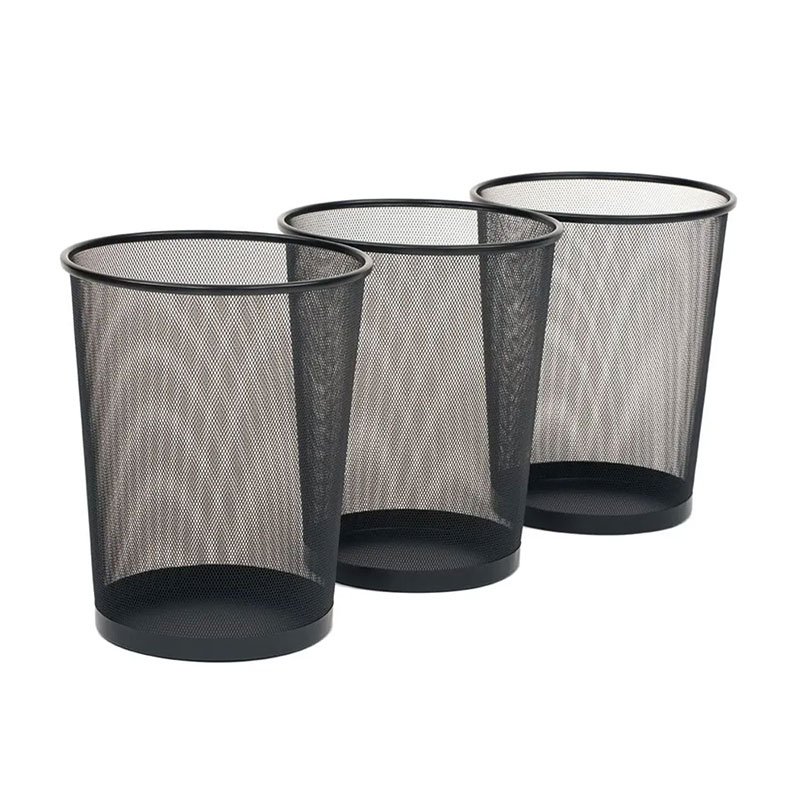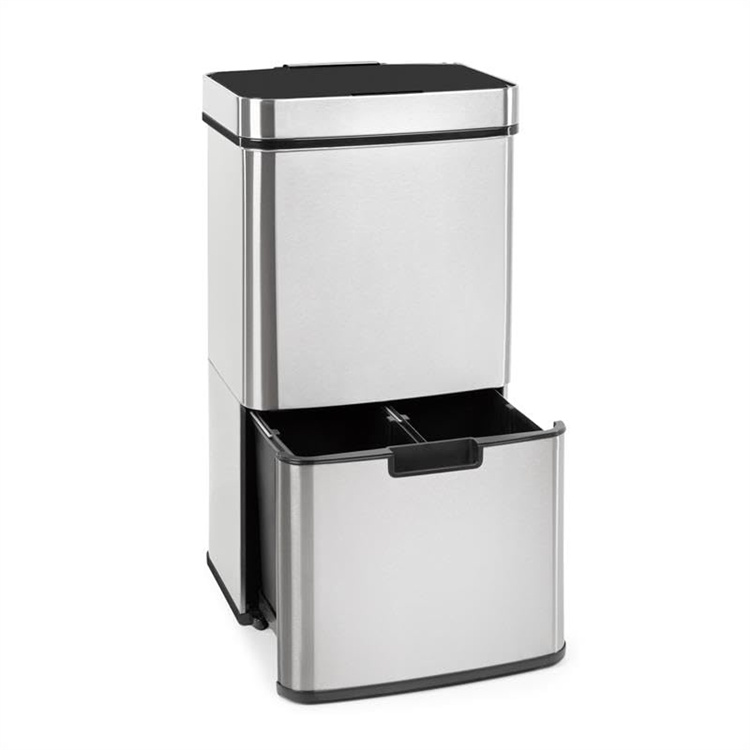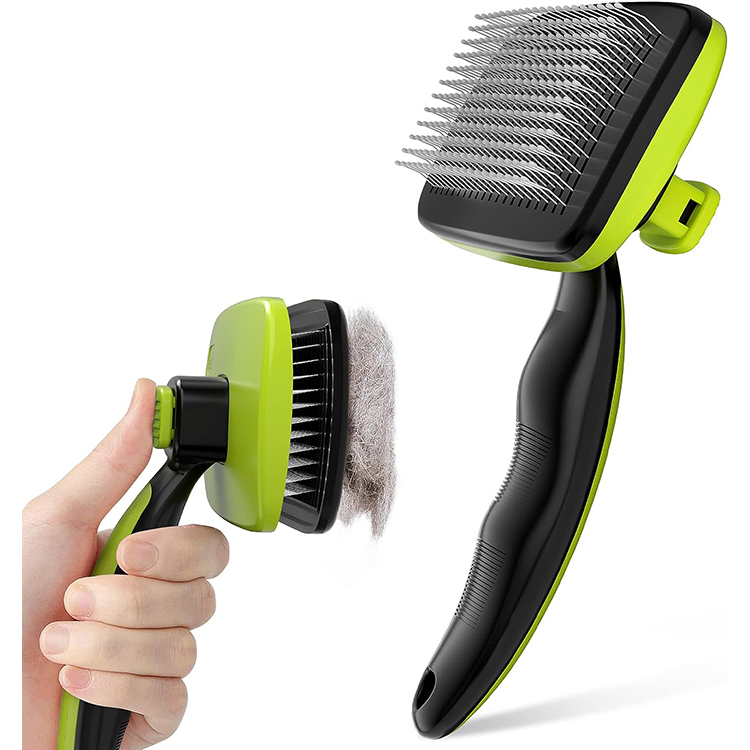Pedal bins vs. sensor bins: Which is better?
Managing waste efficiently can be challenging, especially when hygiene and convenience are priorities. Choosing the wrong bin type may lead to mess, unpleasant odors, or even contamination. The solution? Understanding the differences between pedal bins and sensor bins to make an informed decision.
Pedal bins are ideal for cost-effective, hands-free waste disposal, while sensor bins provide enhanced convenience, improved hygiene, and a modern touch. Choosing between them depends on your budget, waste disposal needs, and preferred level of convenience.
Not sure which option suits your business best? Keep reading to explore the key factors to consider.
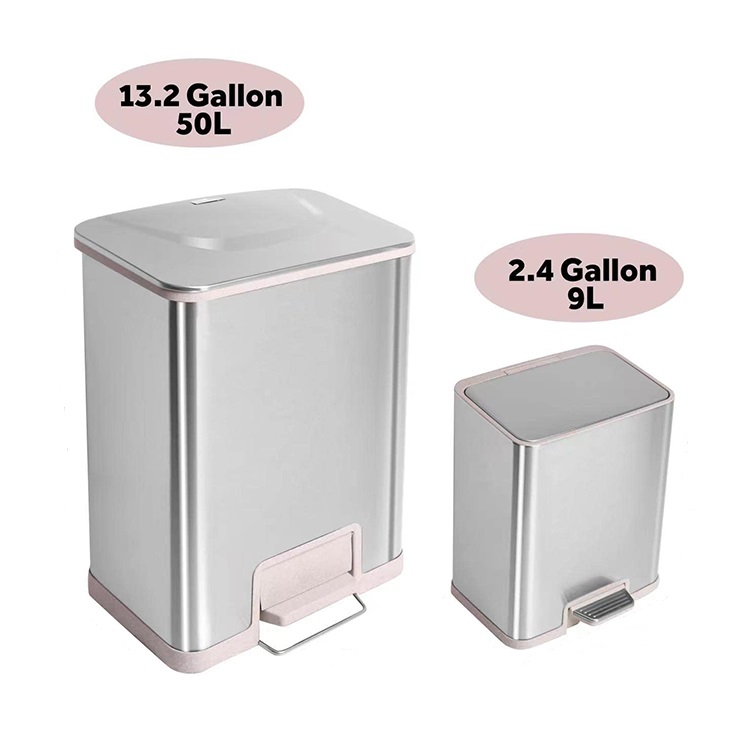
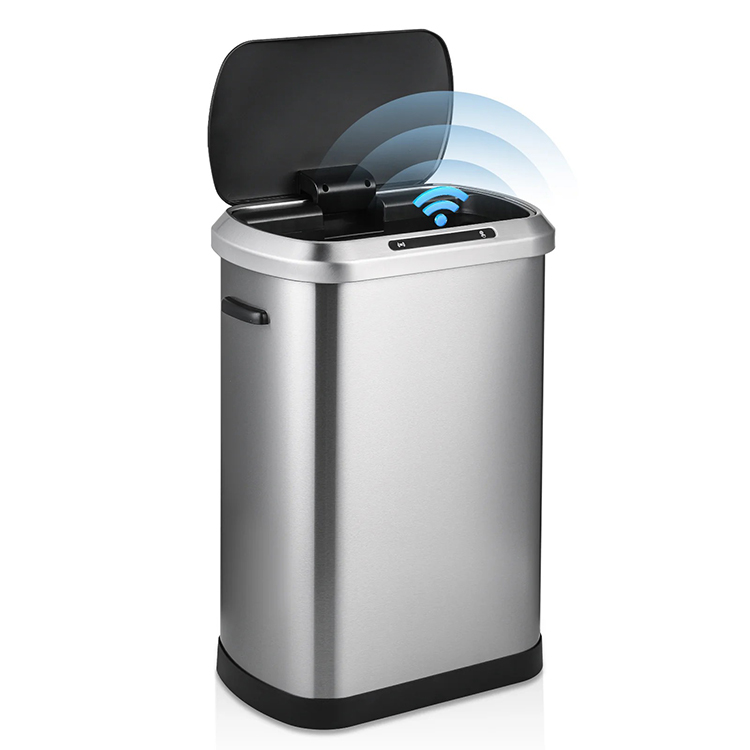
Evaluate your business’s waste volume, type, and frequency of disposal
Before deciding between a pedal bin and a sensor bin, assessing your waste management needs is crucial. For businesses generating high waste volumes, durable pedal bins with heavy-duty materials are reliable in high-traffic areas. Conversely, sensor bins may be more suitable for environments that prioritize hygiene, such as medical facilities or food preparation spaces. Consider specialized bins for recycling or composting to ensure effective waste separation and eco-friendliness. Partnering with a supplier that offers customizable solutions allows you to tailor bins to your specific requirements, improving both functionality and aesthetic consistency.
What are the key advantages of pedal bins?
Pedal bins, also known as foot pedal trash cans, are popular for their simplicity and durability. They provide hands-free operation, reducing direct contact and minimizing the spread of germs. Their mechanical design requires no power source, making them ideal for locations where electrical access is limited. Additionally, pedal bins are generally more affordable, making them cost-effective for businesses needing multiple units. Their durable construction suits high-traffic areas, ensuring long-term reliability. For businesses seeking low-maintenance waste solutions with minimal running costs, pedal bins are an excellent choice.
Why choose a sensor bin for your business?
Sensor bins offer a more advanced waste disposal solution. Featuring motion detection technology, these bins open automatically when movement is detected, providing a completely touch-free experience. This enhanced hygiene feature is particularly beneficial in medical facilities, kitchens, and offices where cleanliness is paramount. Although sensor bins may require battery changes or electrical connections, their sleek design and modern appeal make them a stylish addition to professional environments. For businesses aiming to provide a premium, high-tech experience, sensor bins offer both convenience and improved sanitation.
Maintenance and durability considerations
Pedal bins generally require minimal maintenance due to their mechanical design. With fewer electronic components, they are less prone to malfunction and can withstand heavy daily use. Sensor bins, while offering enhanced convenience, may require periodic battery replacements or cleaning of motion sensors to maintain optimal functionality. For businesses with limited maintenance resources, pedal bins provide a simpler, long-term solution. However, in settings where hygiene and effortless waste disposal are key priorities, the additional upkeep of sensor bins may be worthwhile.
Cost comparison: Pedal bins vs. sensor bins
Pedal bins are typically the more affordable option, both in terms of upfront costs and ongoing maintenance. They are a practical choice for businesses needing multiple units across various areas. Sensor bins, while often more expensive initially, offer added convenience and improved hygiene, potentially reducing cleaning expenses in the long term. Weighing the balance between budget constraints and desired features can help you make the best decision for your business.
Which bin suits different environments?
Pedal bins excel in high-traffic spaces such as public restrooms, cafeterias, or workshops due to their durability and ease of use. Sensor bins are ideal for settings that demand heightened hygiene, such as hospitals, offices, or luxury retail spaces. Assessing your business’s environment and daily waste disposal practices will help determine which type best aligns with your operational needs.
Conclusion
Choosing between pedal bins and sensor bins depends on your business’s priorities—cost-efficiency, hygiene, or convenience. Assess your needs to select the best fit.

